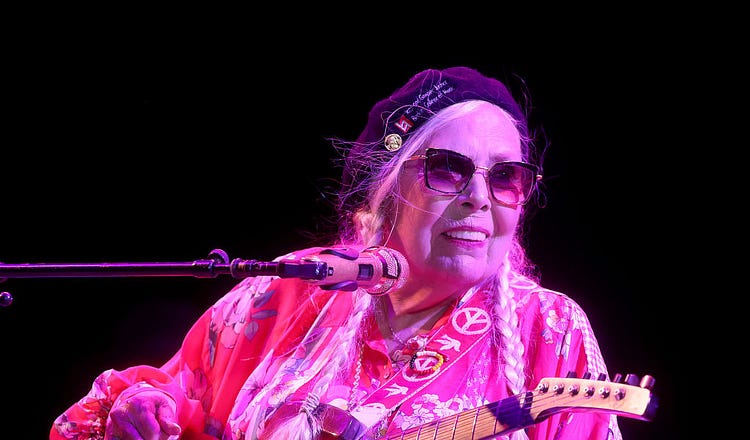The Grammys Don’t Deserve Joni Mitchell

Joni Mitchell performs at “Joni Jam” honoring her on June 10, 2023, in George, Washington. (Photo by Gary Miller via Getty Images)
The first lady of folk has never won an important award from the Recording Academy. So why is she even turning up for the show?
131
On Sunday, Joni Mitchell will headline the 66th Annual Grammy Awards. It is the first time in the awards’ history that she will perform at the ceremony. And it’s a minor miracle. Nine years ago, she suffered an aneurysm that threatened to leave her mute. At the age of 80, she has recovered to make her debut for the Recording Academy.
But before you feel…
Continue Reading The Free Press
To support our journalism, and unlock all of our investigative stories and provocative commentary about the world as it actually is, subscribe below.
$8.33/month
Billed as $100 yearly
$10/month
Billed as $10 monthly
Already have an account?
Sign In


